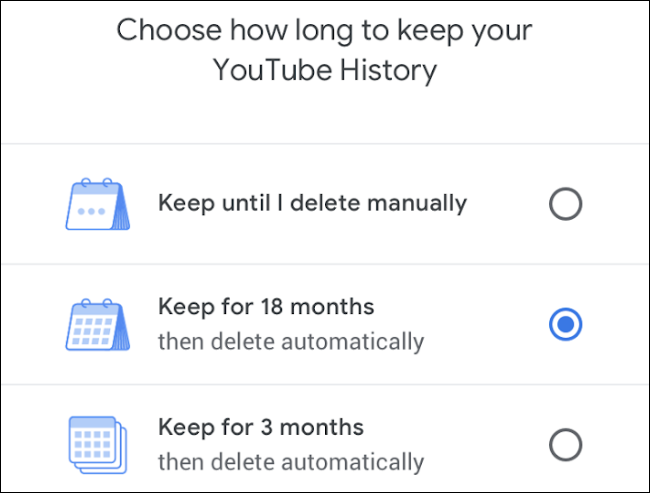
谷歌开启隐身模式

Today, Google is announcing a plethora of new privacy and security features: Incognito Mode for Google Maps, auto-deletion of your YouTube history, voice privacy controls in Google Assistant, and Password Checkup built into Google’s password manager.
今天,Google宣布了许多新的隐私和安全功能:Google地图的隐身模式,YouTube历史记录的自动删除,Google Assistant中的语音隐私控件以及内置在Google密码管理器中的Password Checkup。
First up: Google Maps is getting Incognito Mode soon. Google says it will start rolling out on Android later this month, with support for iPhone and iPad coming soon. Just like using Incognito Mode in YouTube, you can search for locations in Google Maps and view them without those locations being added to your history. They won’t be used to personalize your experience.
首先:Google Maps即将进入隐身模式。 谷歌表示,它将在本月晚些时候开始在Android上推出,并很快将支持iPhone和iPad。 就像在YouTube中使用隐身模式一样,您可以在Google地图中搜索并查看位置,而无需将这些位置添加到您的历史记录中。 它们不会用于个性化您的体验。
When this feature arrives, you’ll be able to tap your profile photo and then turn Incognito Mode on. Google didn’t say whether this feature is coming to the Google Maps website for desktop, but you can always open Google Maps in an Incognito window in Chrome for desktop.
到达此功能后,您将可以点击个人资料照片,然后打开隐身模式。 Google并未透露此功能是否会出现在桌面版Google Maps网站上,但您始终可以在Chrome桌面版隐身窗口中打开Google Maps。

YouTube is getting auto-delete, a feature that’s already available for your Google account’s location history and web & app activity. When you enable it for your YouTube History, Google can automatically delete your YouTube watch and search history every 3 months or 18 months—whichever you choose.
YouTube正在自动删除,此功能已可用于您Google帐户的位置记录以及网络和应用活动 。 为YouTube历史记录启用该功能后,Google可以每3个月或18个月(无论您选择哪个)自动删除您的YouTube观看和搜索记录。
You’ll get some of the benefits of personalization, but YouTube won’t build up a years-long history of your interests.
您将获得一些个性化的好处,但是YouTube不会建立您多年的兴趣爱好历史。

Google Assistant is getting better voice controls. Rather than digging through Google’s app or website to delete things you’ve said to Assistant, you can now say “Hey Google, delete the last thing I said to you” or “Hey Google, delete everything I said to you last week.”
Google助理的语音控制功能越来越好。 您现在可以说“嘿,谷歌,删除我对您说的最后一句话”或“嘿,谷歌,删除我上周对您说的所有内容。”
Google says this feature will arrive in English next week and for other languages next month.
谷歌表示,该功能将在下周以英语发布,而在下个月将以其他语言发布。

Google’s password manager is getting better, too. Password Checkup is arriving in Google’s password manager on the web. Just like similar features in password managers like LastPass and 1Password, it’ll want you about which passwords are weak, which you’ve reused across multiple websites, and which were discovered to be compromised in a data breach. You then know which passwords you should consider changing.
Google的密码管理器也越来越完善。 密码检查功能已通过网络进入Google的密码管理器。 就像密码管理器中的类似功能(如LastPass和1Password)一样,它会希望您了解哪些密码是弱密码,哪些密码已在多个网站上重复使用以及哪些密码密码泄露而被盗用。 然后,您知道应该考虑更改哪些密码。
The password features are arriving in Cybersecurity Awareness Month, which is apparently October. A Google/Harris survey found that 66% of Americans reuse the same password for multiple sites and that only 12% of Americans use a password manager. It’s good to see Google’s password manager getting more and more capable.
密码功能将于“网络安全意识月”(显然是10月)到来。 Google / Harris的一项调查发现,有66%的美国人在多个站点重复使用相同的密码,而只有12%的美国人使用密码管理器。 很高兴看到Google的密码管理器变得越来越强大。
Google also says the Password Checkup feature is coming to Chrome later this year. If any of your usernames or passwords has been leaked in a known data breach, Chrome will warn you and suggest you change your password. In other words, Google is building its Password Checkup extension into Chrome.
谷歌还表示,密码检查功能将于今年晚些时候推出。 如果您的任何用户名或密码因已知数据泄露而泄露,Chrome都会警告您并建议您更改密码。 换句话说,Google正在将其密码检查扩展程序构建到Chrome中。
翻译自: https://www.howtogeek.com/442676/google-announces-new-security-and-privacy-options/
谷歌开启隐身模式
























 被折叠的 条评论
为什么被折叠?
被折叠的 条评论
为什么被折叠?








